Can You Filter Hose Water? (with Garden Hose Filter Benefits)
Taking a generous sip from your hose as you water your plants can seem like a good idea, but it’s a health hazard. If the water comes from a well, there is a good chance it is contaminated with pathogens. But even if it’s from the municipal line, the water could still be contaminated with lead and other contaminants. Can you filter hose water?
You can use filter hose water to eliminate chlorine, lead, pathogens, and other harmful contaminants from a water supply, making it more suitable for watering plants and washing cars. Water hose filters improve the taste of the water by reducing chlorine levels, but you would need a whole, multi-stage filtering system to remove all contaminants from a garden hose.
Read on to learn more about the potential hazard of hose water and how to handle them!
Can you filter water from a garden hose?
First, can you filter hose water? Let’s detail the basics and then get into cleanliness and other common concerns regarding hose water.
You can filter water from a garden hose with a whole-home filtration system or a filter that connects directly to your garden hose. FGarden hose filters remove calcium, chlorine, and lead minerals from your garden hose water, which is helpful for outdoor cleaning because it reduces mineral buildup on surfaces.
Water hose filter attachments are a useful tool because they fit most types of outdoor hoses, including some pressure washers. The added benefit of a garden hose filter for hard water is that it makes cleaning much easier.
You can even use a garden hose filter for well water to reduce the overall mineral count in the water used for cleaning or watering plants.
Another idea is to use a garden hose water filter for washing cars; no more mineral and residue buildup after trying to get your car squeaky clean.
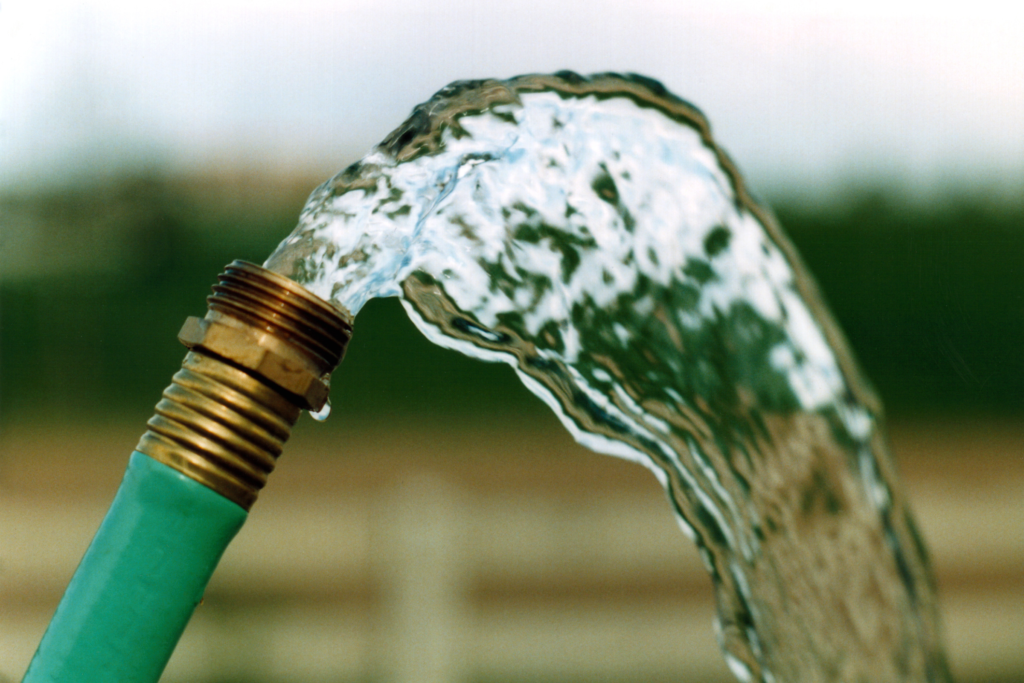
How to filter hose water
There are several types of water filters available for filtering hose water, including activated carbon filters, reverse osmosis systems, and ultraviolet light filters.
Activated carbon filters are the most common type of filter used for filtering hose water, as they are effective at removing chlorine, sediment, and other impurities.
Reverse osmosis systems are the most effective type of filter for removing dissolved solids, such as lead, arsenic, and other heavy metals.
Ultraviolet light filters are effective at killing bacteria and other microorganisms, making the water safe for drinking.
How clean is hose water?
Hose water may not be clean for several reasons.
Hoses aren’t manufactured to deliver safe drinking water like home plumbing is. There is a good chance hose water is contaminated with lead, bromine, phthalates, bisphenol A, and other contaminants like pathogens, fluoride, and chlorine.
A study by the Ecology Center found the presence of many hazardous substances (most of which are now banned in children’s products because of their toxicity) in hose water.
According to the study, the chemicals found in hose water can be linked to premature births, liver toxicity, birth defects, impaired learning, and early puberty, among many other health complications. Suffice it to say that drinking unfiltered hose water harms you and your pets, so you may want to install a hose water filtration system.
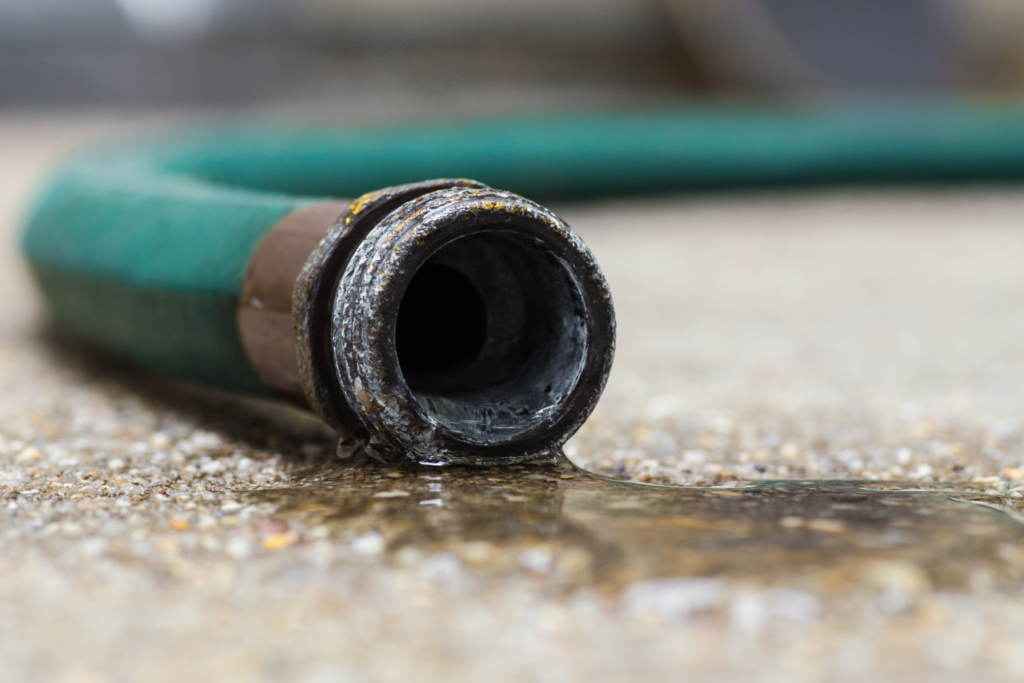
Are garden hoses toxic?
In 2016, Ecology Center tested tens of hoses from Amazon, Home Depot, Lowes, Walmart, Meijer, and Walmart. They assessed the hoses for bromine, antimony, arsenic, mercury, tin, cadmium, lead, bisphenol, and phthalates.
The study found that most hoses had at least two of the above toxic substances, meaning most garden hoses are toxic. But not all garden hoses are toxic. It will be non-toxic if you use a hose made with FDA-approved materials.
Do hoses have lead?
A recent study found that most of the PVC hoses on the market have lead in them, which will ultimately contaminate the water. In addition to lead, PVC hoses also have antimony, phthalates, and bromine. The hose fittings are typically made from brass, an alloy with 8% lead. This far exceeds the standards for safe drinking water.
That said, it is possible to get non-lead hoses. For starters, buy a hose that is non-PVC. But more importantly, go for hoses that are made from FDA-approved materials. Also, check to ensure the fitting is nickel-plated and not brass-plated.
A lead-free hose is usually labeled “drink-safe” to indicate no or very little chance of lead contamination.
Does hose water have chlorine?
If you are connected to a public water sanitation system, your water will have chlorine.
Chlorine is usually added to the water because it effectively kills pathogens. The quantities are, however, controlled to ensure it doesn’t get toxic. Hose water is not drinkable, but you can use it to water your plants.
However, you still need to ensure no other contaminants in the hose water to be completely safe. You can avoid PVC hoses and use a good hose water filtration system.
Can you get sick from drinking from a water hose?
For the most part, hose water is the same as water from your home faucets. But there is a slight difference that makes the two different in safety.
You can get sick from drinking hose water. Although in-house plumbing delivers safe drinking water, hose water contains harmful bacteria that, if not filtered properly, can cause adverse health effects. Still, it’s generally unsafe to drink filtered hose water.
Unless for cases of older houses, most modern plumbing is made of materials that will not contaminate your water with lead or any other heavy metals.
On the flip side, most garden hoses are made from PVC, which exposes the water to toxic substances. Phthalates and chemical BPA can easily leak from the PVC hose into water, and drinking such water can expose you to lots of health complications. Some common ailments one can suffer include premature births, early puberty, impaired learning, and birth defects.
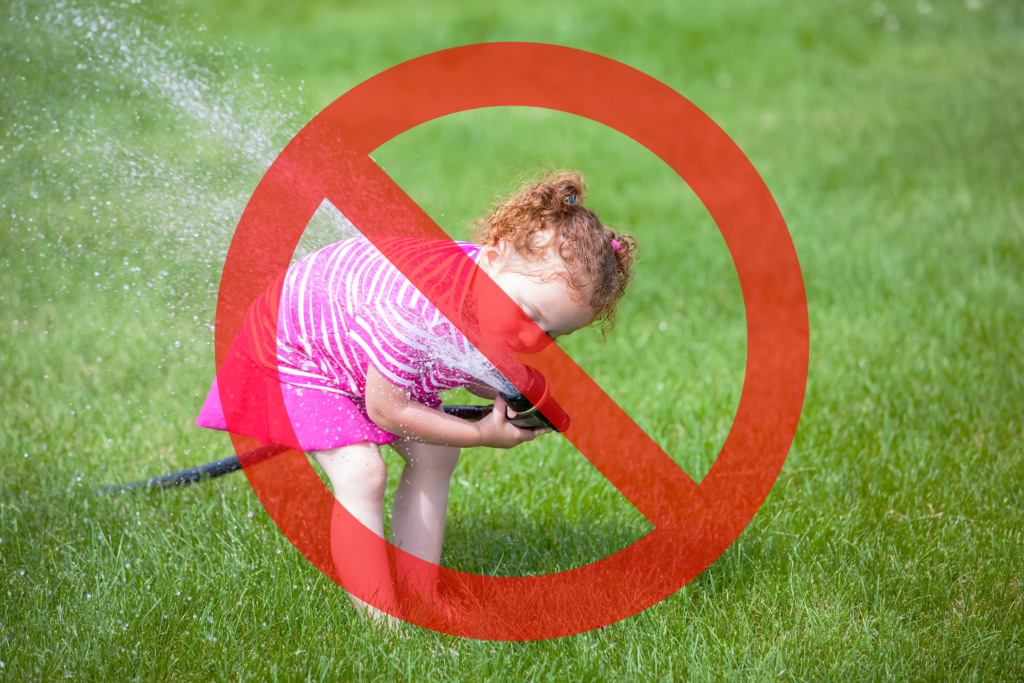
Can you get Legionnaires disease from a garden hose?
Legionnaires’ disease is a severe type of pneumonia caused by legionella.
Studies have shown that garden hoses can generate aerosols when used. When these aerosols contain legionella bacteria and are inhaled, one can suffer from Legionnaires disease or Pontiac fever. Although rare, it could happen.
Hoses typically provide a conducive environment for the growth of legionella bacteria due to the elevated temperatures, water stagnation, and biofilm formation.
Is it okay to water plants with chlorinated water?
In excessive amounts, chlorine can be toxic to plants. Any chlorinated water (e.g., water from your swimming pool) should not be used to water your plants.
It is okay to water plants with chlorinated water. Chlorine is usually added to municipal water to kill pathogens and make it safe for consumption. So, if you are using municipal water, it already has some chlorine content. The low chlorine level in tap water is not only safe for humans and pets but is also safe for plants.
In fact, plants need chlorine for healthy growth and development, so it is okay to use tap water for irrigation.
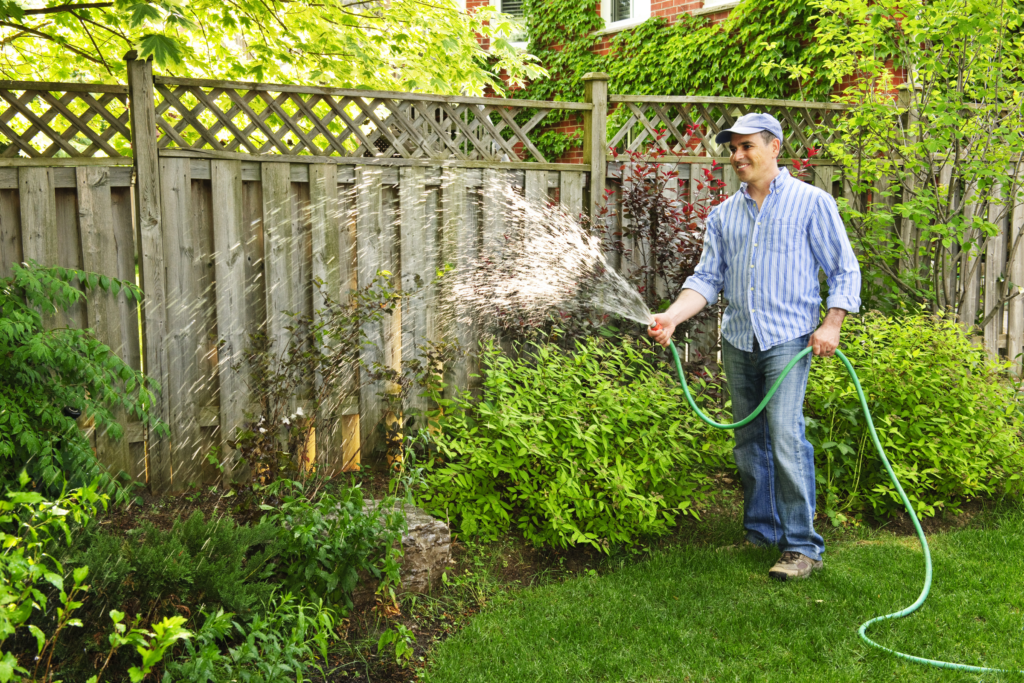
Can my dog drink hose water?
Can your furry friend drink the water from the hose?
Animal experts strongly advise against pets drinking hose water because it can cause pneumonia or contain metals, chemicals, and pathogens that can cause various adverse health effects.
One of the common health complications for pets that drink hose water is aspiration pneumonia. As your pet inhales the water from the hose, it could quickly get into his lungs, leading to aspiration pneumonia. But the pet is also exposed to pathogens and chemicals that could potentially make them sick.
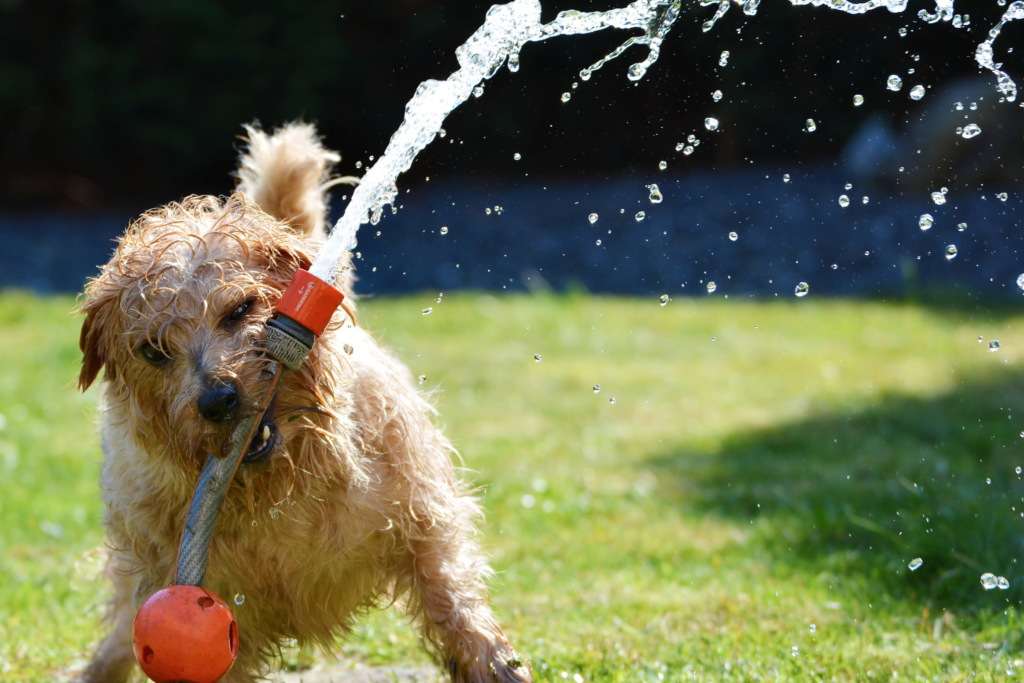
How do you dechlorinate hose water?
If the chlorine quantiles in your water are too high, you may want to dechlorinate it.
To dechlorinate hose water, use a hose water filter. In addition to dechlorinating the water, the filter will remove any other impurities that might have made the water unsafe for irrigation. The filter will not make the hose water drinkable.
It’s strongly recommended never to drink water from a hose, regardless of whether you use a filter.
Let Us Know How We’re Doing!
Did this expertly prepared resource answer your question?
Do you have another question about home maintenance, home improvement projects, home appliance repair, or something else?
Get more information, send in questions and keep the discussion going by contacting the I’ll Just Fix It Myself company customer service team at at 1-800-928-1490 or Email us at [email protected]
